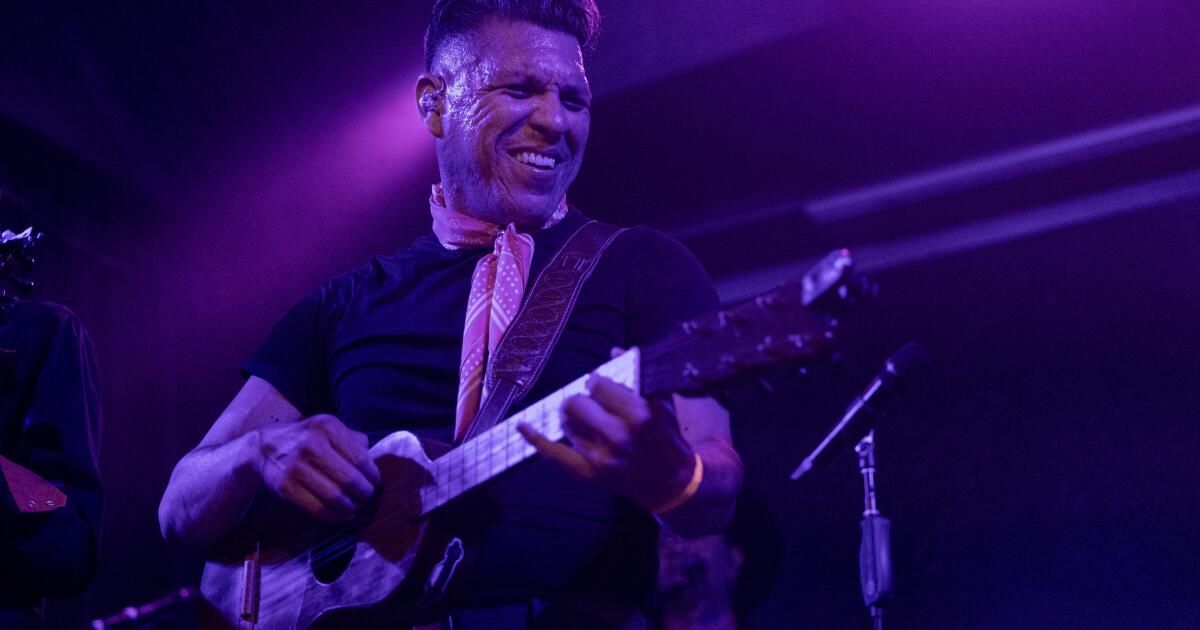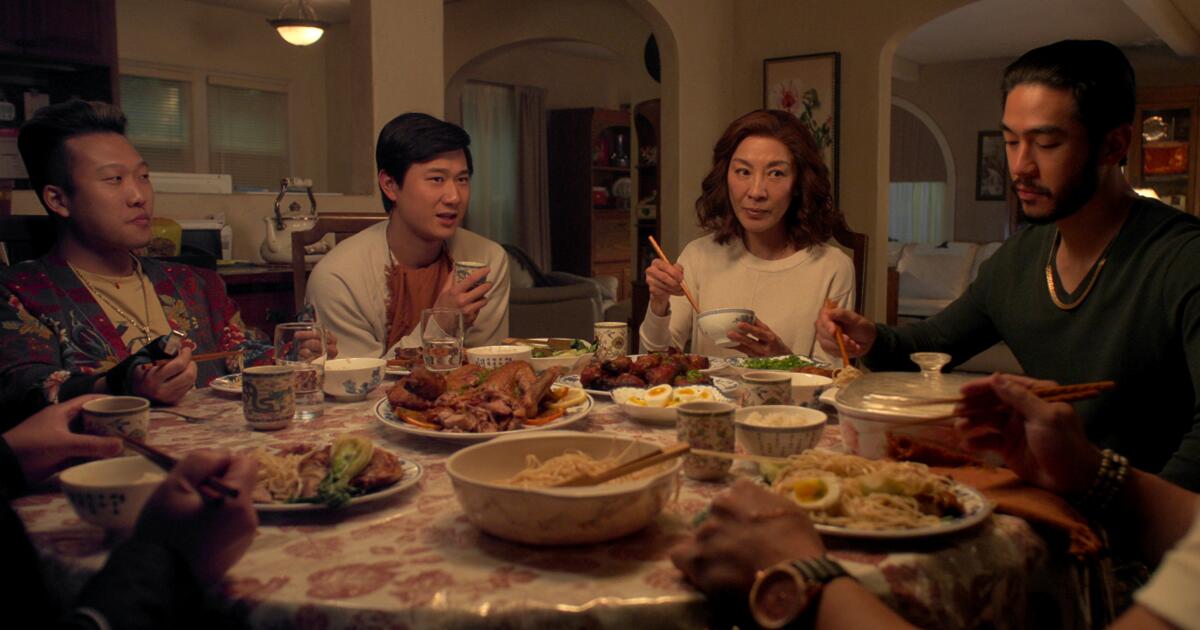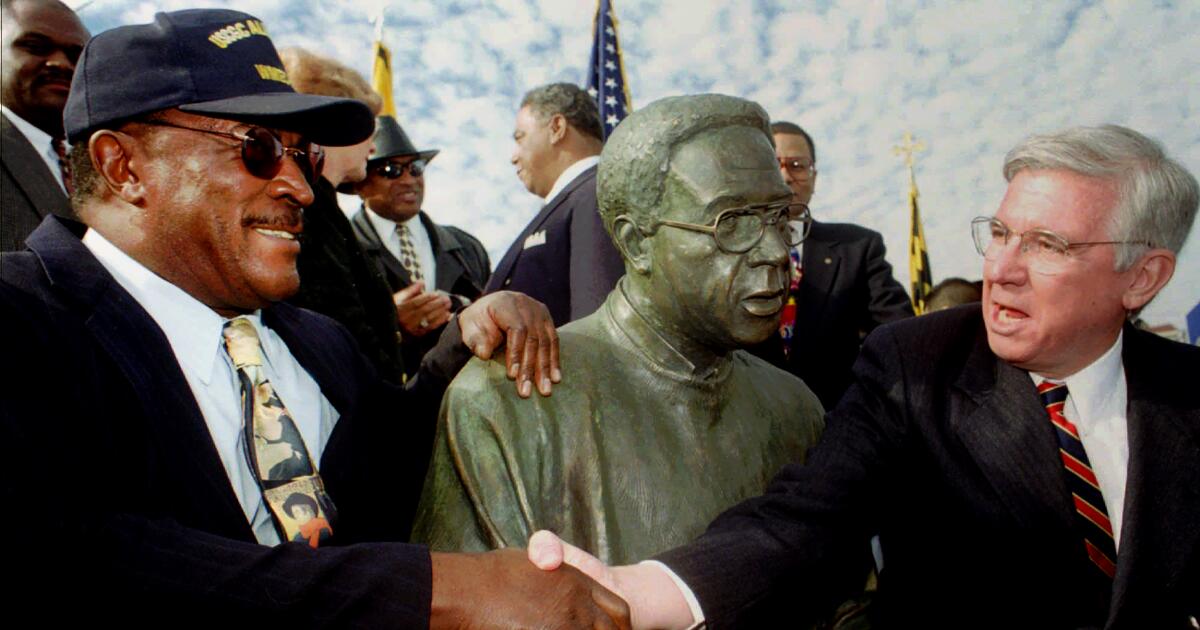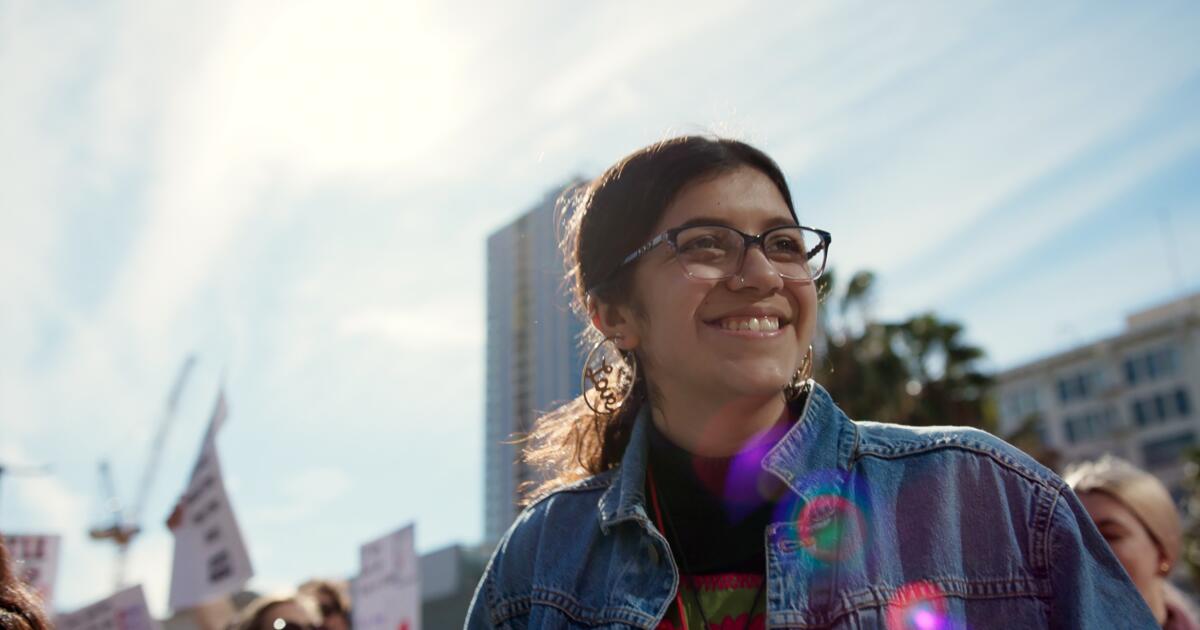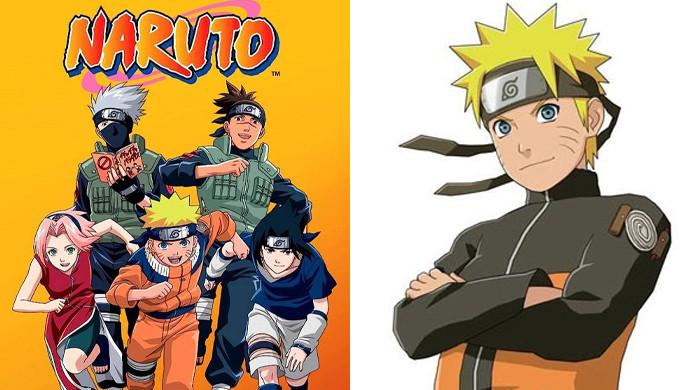Héctor Flores and Denise Carlos, members of Las Cafeteras, spent their teenage years pursuing the dreams of their immigrant parents. After attending college, they were expected to marry, start families, and live simple lives.
Instead, they formed Las Cafeteras, a protest band based in East Los Angeles, and dedicated their lives to activism through music.
“I had to keep explaining [to my parents] why it was so significant that he made music. I would get frustrated and ask 'Why don't you have bigger dreams for me?'” Carlos said. “For them, buying a house and having a pension was a pretty big dream. “I always say that they gave me the audacity to dream big.”
Despite having been an eight-piece folk band for over a decade, the group didn't start out with the intention of making music. Members' initial priority was to shed light on issues such as immigration and women's and LGBTQ+ rights.
Now, on their new album, “Una noche en Nepantla,” released in May, they finally claim the title of musician. Creating their “most honest album yet,” they say the nine-track album is an accurate representation of who they are today.
Denis Carlos of Las Cafeteras sings at the Paramount in Boyle Heights.
(Zoe Cranfill / Los Angeles Times)
“With [‘A Night in Nepantla’]we found a really beautiful place to accept ourselves,” Flores said. “I always wanted to make this music, but I didn't know how.”
Formed by college students in the early 2000s, the band has seen many lives and members since then; The singers and revelers Flores, Carlos and the drummer José Guadalupe Cruz Cano are the last original members. Additionally, on the tour they are accompanied by bassist Moisés Baqueiro, keyboardist Jesús González, singer Alih Jay de Peña and Pok'ok Mijangos, who plays the requinto jarocho.
“We realized early on that protest doesn't always have to be a march or demonstration,” Flores said. “Music can be attractive to everyone.”
Flores and Carlos first met in 2003 at a leadership conference of the Chicano Student Movement of Aztlán (MEChA) at Cal State Long Beach. At the time, both were heavily involved in organizing protests for the Cal State system. Their friendship and shared interests continued to grow at East Side Cafe, a volunteer-run community center where the band officially became a reality in 2010.
“We started learning to play music together, to sing together, to dance together and finally to write together,” Flores said. “If we want to survive, we have to tell our story.”
Over the years, the group has released three full-length albums: “It's Time,” “Tastes Like LA” and the new one. In their first two projects, they stayed within the boundaries of traditional Latin folk music, telling stories of fighters and rebellions over guitar-driven themes. On their third album, however, they welcome a new balance between their sonic creativity and their political efforts.
In an effort to step out of their comfort zone, the members decided to emphasize the dance rhythms in “A Night in Nepantla.” Tracks like the bass-heavy club pop “Tia Lucha” and the electronic-infused ode to Mother Earth “Morena Morena” showcase the band's upbeat chops.
“If you listen to who we were before and after the pandemic, we are a totally different band, sonically, instrumentally and electronically,” Flores said. “There's a new sense of brown futurism.”
Even though they embraced this newfound feeling, they could not give up their folkloric style of storytelling. In the album title they refer to “Nepantla”, which comes from a Nahuatl word that means “between” or “in the middle”. As children of immigrants growing up in the United States, they turned to this family concept as a basis for registration.
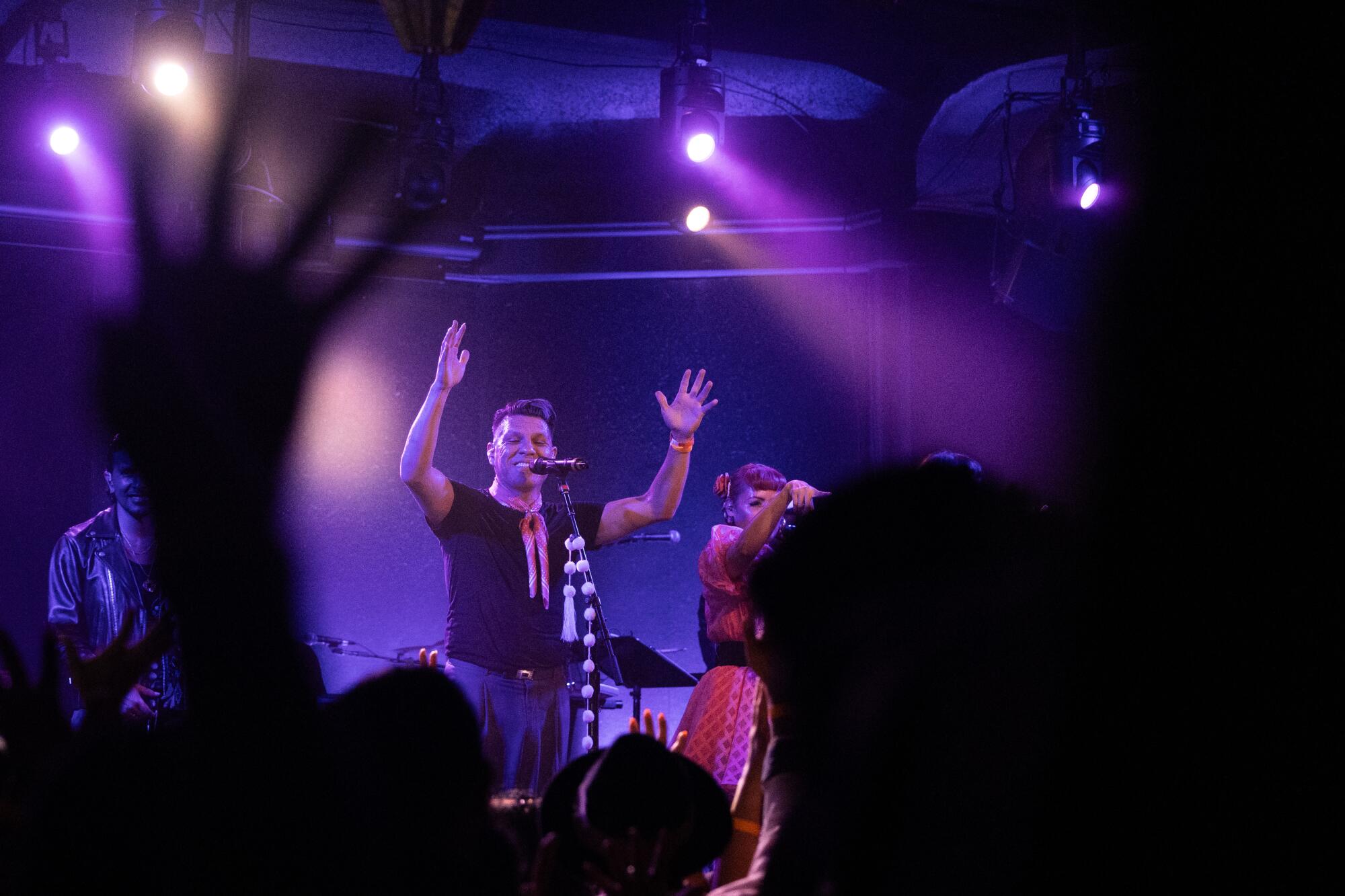
Las Cafeteras perform before a sold-out audience.
(Zoe Cranfill / Los Angeles Times)
“It's where you haven't reached your destination yet and you're almost lost,” Carlos said. “I always felt like I didn't belong as a Chicana or as a woman. It’s always that you’re not Mexican enough, you’re not white enough, or you’re not American enough.”
Using this sentiment as a common thread allowed group members to address both personal experiences and those of the broader community. In songs like “Cumbia De Mi Barrio,” a fusion of Peruvian huayno-style cumbia and electro-pop, they share pleasant memories linked to their “neighborhood,” while in “Vivas Nos Vamos,” with synthesizer, they draw attention to the many missing and murdered indigenous, Latina and trans women who have never been found.
“Our music and shows are like an activation. It's a protest. “It’s a fucked up meeting… It will make you feel like we can change the world together,” Flores said. “If it can happen on the dance floor. It can happen out there.”
Marked by a record release show at the Paramount in August, the band brought the new sound back to their East Los Angeles home. When the members of Las Cafeteras took the 100-year-old stage, adorned in color-coordinated scarves and ribbons, the energy of the room changed.
Girls were carried on their fathers' shoulders and multigenerational families shuffled through the sold-out crowd. The bandmates sang songs from their catalog, as well as revamped versions of classics like “La Guacamaya” and “La Bamba,” where they changed the lyrics to reflect their politics.
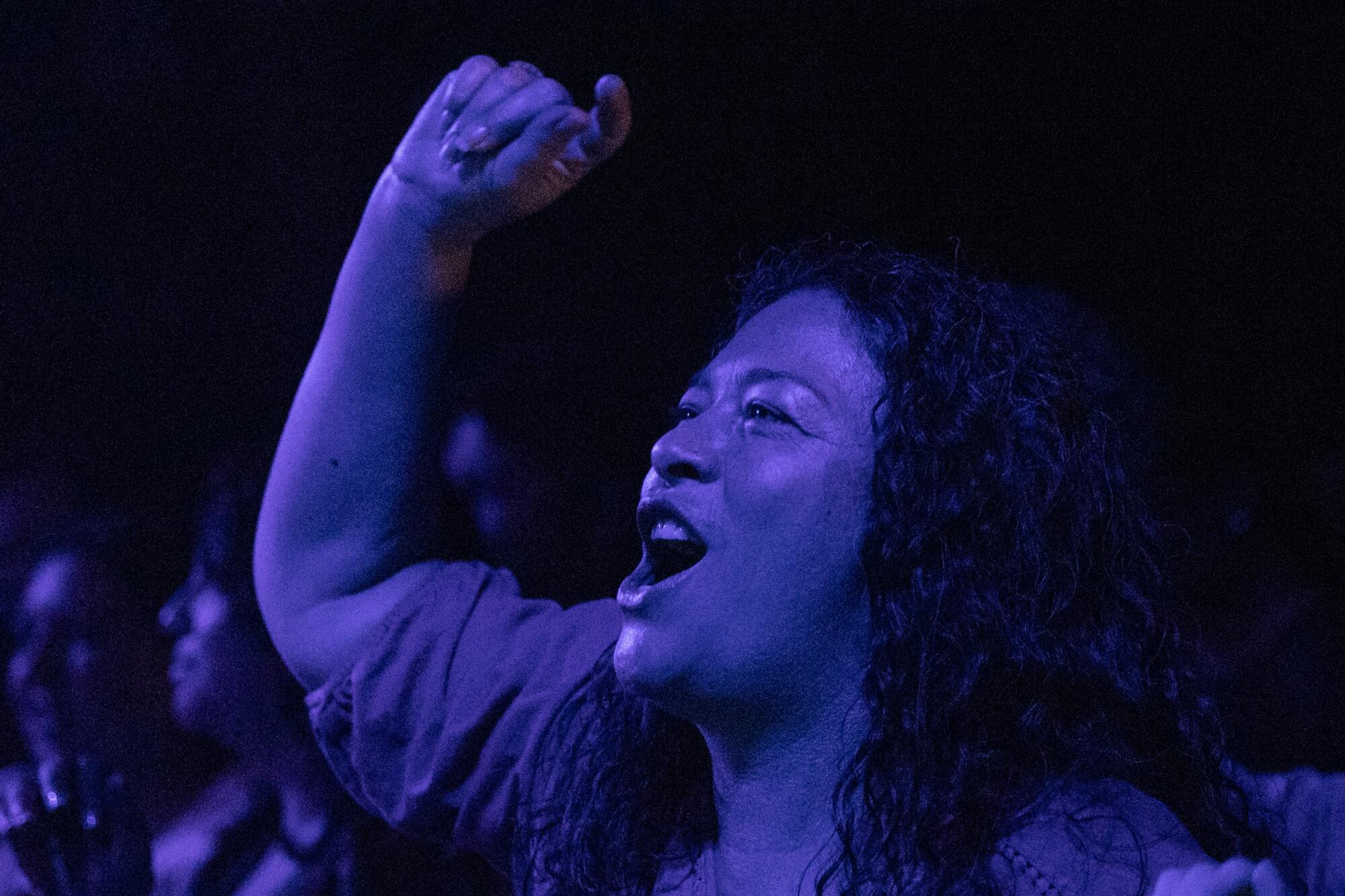
Las Cafeteras fans join the band in singing their favorite songs during a summer show at the Paramount.
(Zoe Cranfill / Los Angeles Times)
“That was our parents' music, but it is also our music. “I identify with him more and I feel more proud of it,” said Diana Guzmán, 42, a Las Cafeteras fan who attended the Los Angeles show. “Someone can bring their kids, I can bring my parents and we can all relate to it.”
At the Boyle Heights concert, the band members took control of the stage, with Carlos and Flores in the middle. Between each song, they shared words of motivation. Flores told the crowd, “Let's change the world one show at a time, but before we change the world together, let's dance together.”
During songs like “La Sirena,” a rhythmic lullaby inspired by a drag queen, and “El Chuchumbe,” focused on the guitar, small circles began to form in the crowd where anyone could join in and move to the beat.
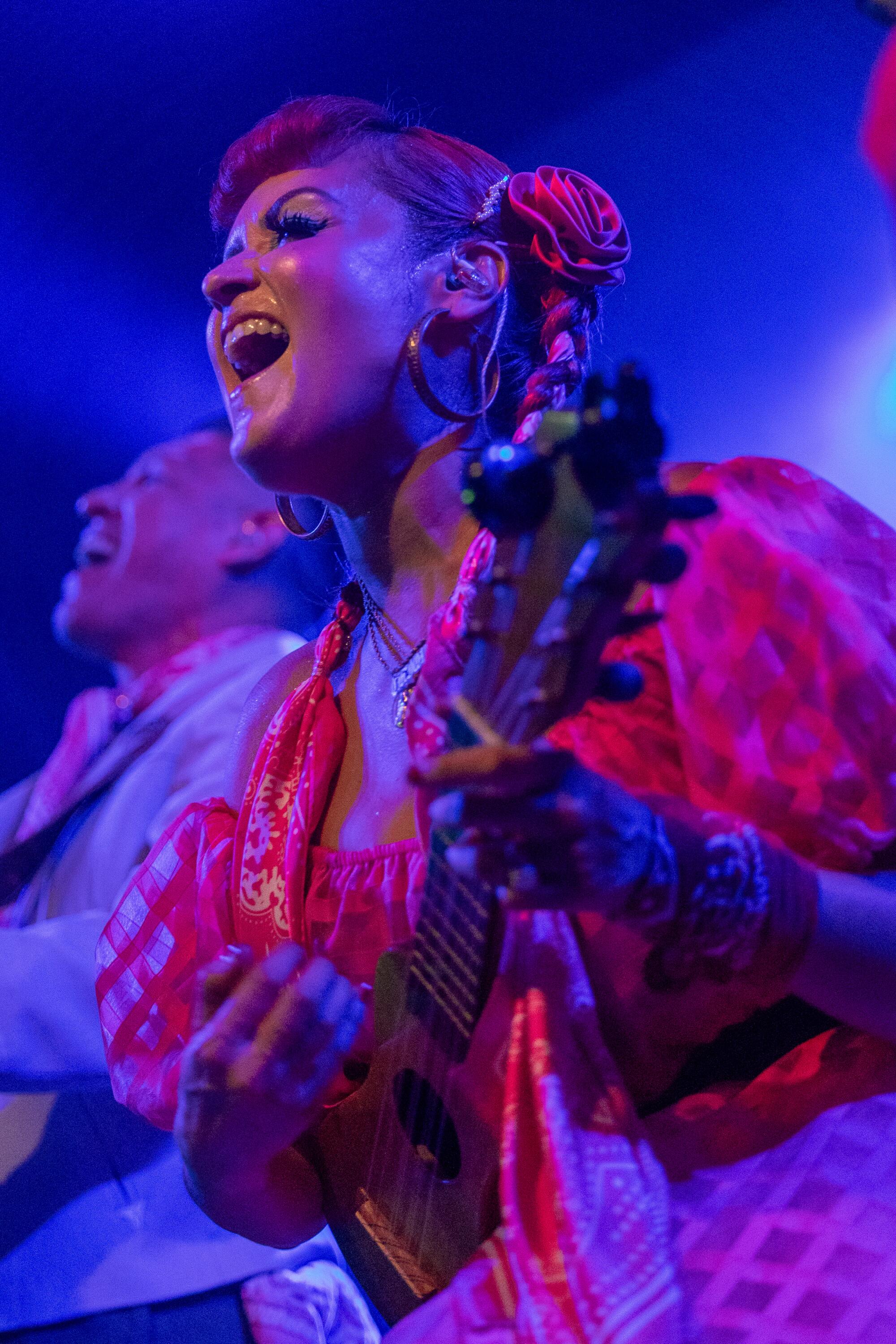
Denise Carlos of Las Cafeteras plays the first jarana during the East Los Angeles band's album release show.
(Zoe Cranfill / Los Angeles Times)
The crowd chants “another” and the band returns for an encore. Flores dedicates the following song to all the “racists, fanatics and sexists who want us back and we are not coming back.”
The familiar opening of Kendrick Lamar’s “Not Like Us” begins, but before the beat drops, sounds of cumbia fill the space. Flores began rapping Lamar's verses over a cumbiado version of the song. At first, the crowd was stunned, not expecting to hear a new rendition of the Los Angeles anthem. When the chorus hit, the entire room was singing, “They don't like us,” louder than the band members themselves.
But they weren't done yet. Before he finished his version of Lamar, the first winds of “La Bamba” began. Performing their own version, “La Bamba Rebelde,” the band members ended their show on a high note, singing “It's the bamba rebel that I will sing / Because we are Chicanos from East LA.”
Las Cafeteras' last shows on their Partido Popular tour will be in California: October 31 in Visalia, November 1 in San Diego and November 2 in San José.

